
To
the Graceful Memory of
SUE BAILEY THURMAN
Ring Out Wild Bells...
 IT IS A STRANGE FREEDOM to be adrift in the world of men without a sense of anchor anywhere. Always there is the need of mooring, the need for the firm grip on something that is rooted and will not give. The urge to be accountable to someone, to know that beyond the individual himself there is an answer that must be given, cannot be denied. The deed a man performs must be weighed in a balance held by anothers hand. The very spirit of a man tends to panic from the desolation of going nameless up and down the streets of other minds where no salutation greets and no friendly recognition makes secure. It is a strange freedom to be adrift in the world of men.
IT IS A STRANGE FREEDOM to be adrift in the world of men without a sense of anchor anywhere. Always there is the need of mooring, the need for the firm grip on something that is rooted and will not give. The urge to be accountable to someone, to know that beyond the individual himself there is an answer that must be given, cannot be denied. The deed a man performs must be weighed in a balance held by anothers hand. The very spirit of a man tends to panic from the desolation of going nameless up and down the streets of other minds where no salutation greets and no friendly recognition makes secure. It is a strange freedom to be adrift in the world of men.
Always a way must be found for bringing into ones solitary place the settled look from anothers face, for getting the quiet sanction of anothers grace to undergird the meaning of the self. To be ignored, to be passed over as of no account and of no meaning, is to be made into a faceless thing, not a man. It is better to be the complete victim of an anger unrestrained and a wrath which knows no bounds, to be torn asunder without mercy or battered to a pulp by angry violence, than to be passed over as if one were not. Here at least one is dealt with, encountered, vanquished or overwhelmed but not ignored. It is a strange freedom to go nameless up and down the streets of other minds where no salutation greets and no sign is given to mark the place one calls ones own.
The name marks the claim a man stakes against the world; it is the private banner under which he moves which is his right whatever else betides. The name is a mans watermark above which the tides can never rise. It is the thing he holds that keeps him in the way when every light has failed and every marker has been destroyed. It is the rallying point around which a man gathers all that he means by himself. It is his announcement to life that he is present and accounted for in all his parts. To be made anonymous and to give to it the acquiescence of the heart is to live without life, and for such a one, even death is no dying.
To be known, to be called by ones name, is to find ones place and hold it against all the hordes of hell. This is to know ones value, for ones self alone. It is to honor an act as ones very own, it is to live a life that is ones very own, it is to bow before an altar that is ones very own, it is to worship a God who is ones very own.
It is a strange freedom to be adrift in the world of men, to act with no accounting, to go nameless up and down the streets of other minds where no salutation greets and no sign is given to mark the place one calls ones own.
H OWARD T HURMAN , from
The Inward Journey
F OREWORD
SAINTS OUGHT TO BE HARD TO LOCATE . Their saintliness keeps them from being stained by the muck of particular places; dust should not fall on them, nor mud cling to them. Yet we find that the deep ones, the saintly saints, did indeed have sleeves rolled up and calluses on their hands, reaching out to beggars and kings alike. Howard Thurman would qualify for their ranks, would he not have been too embarrassed by our nominating him for such company.
As for mystics, in whose company Thurman is consistently and reflexively located, but where he is never confined, we have to ask how to locate them? Mystics might be dusty and muddied by their surroundings in caves or abbeys, but it would not be noticed because they are closed up in hermitages or inaccessible in their silences. Why locate them? Because for all their search for the unum for participation and absorption in the One, the Whole, or God-life they tend to use the raw material of particular traditions. They not only partly transcend these traditions but rework them into idiosyncratic visions that, when they appear to be valid at all, turn out to be universal in grasp. We speak of Buddhist or even Japanese Buddhist mysticism, of Italian or Tibetan mysticism. We might locate mystics in timemedieval or modernor in ecclesial slots, as in Catholic or Protestant or Orthodox mysticism. So we busy ourselves locating and placing Thurman.
Yet we find it as hard to squeeze him into local, temporal, or ecclesial categories as we find it hard to dislocate him from the places and traditions on which he drew in his preaching, writing, and influencing. Is he perhaps, in the tradition of saints, Howard of San Francisco, of Boston, of the United Nations? It is important to ponder these kinds of questions if we want to get some sort of handle, find some sort of frame, with which to grasp this extraordinary figure.
Catherine Tumber and Walter Earl Fluker, in their important introductory essay are of considerable help (dont skip it in haste to get to the vital words they have transcribed and edited from Thurman). Their biographical sketch is studded with proper nouns, signals of places Thurman worked or visited in his lifelong quest to take experience note the word in the subtitle of this book and move it from the particular toward the universal.
He drew, more than the African-American exclusivists of a generation ago acknowledged, on the black church tradition and the experience of suffering and hope that that tradition embodied, and it shows.
Thurman also drew on the Quaker tradition, which at times he seems to have stumbled upon and at other times looks like such a natural fit that he seemed predestined to have been found by it.
He drew on the nonviolent tradition of Gandhian India, a tradition he chose to encounter as an experience and not merely to read about or wish and claim to be influenced by.
He drew on the depths of the Christian tradition. But wherever he was and whatever it was upon which he drew, he was a mystic with a love of the concrete, the particular, the empirical, the experiential. Note the subtitles word experience once more.
The editors take pains to rescue Thurman from evaporation in New Age spirituality, where good intentions often lead people, and good intentions gone astray can mislead them into vapor. In that crowd, which confuses the soul-search of the sort Thurman undertook with gaseous and self-invented spirituality that is easily marketable and consumable, he lasts only momentarily and has only superficial ties and influences. He is too demanding, too historically rooted, too Jesus-centered to remain the guru of choice through the years.
What is the nature of Thurmans spirituality? Above all, it is moored, as opposed to unmoored. That is, Thurmans spirituality offers an anchor, a harbor from which one departs for the high seas and to which one returns, changed. Thurman visited many ports, spiritually, but he is safely at home in the one that gives him access to the figure and scope of Jesus of Nazareth.
Thurmans is also a prophetic spirituality, as opposed to the self-preoccupied, almost narcissistic variety found in too many of the volumes sold in the mega-book marts. Prophetic spirituality is of the sort that is realized in movements and actions that inconvenience enemies of the good in the human city. Thurmans is definitely of the prophetic sort.
Fortunately, his mooring was not at such a small pier in such a narrow harbor that he cannot be found beyond it. Fortunately, his prophetic spirituality does not shame or defeat us even as it challenges and inspires us. Again, the editors are helpful here. One can read between their lines some impatience with those who want to push him back into battle lines where racial integrationists and separatists encountered and dismissed each other. One also senses the editors impatience with those who want to show that Thurman was irrelevant to the struggle for racial justice on one hand, or those who, on the other hand, want to rewrite him into a place in the front lines of the Civil Rights movements activist ranks. Times have changed, and framing the debate over locating Thurman in older contexts is not as productive as is the effort to take him from his time and place and apply his ideas to our own.

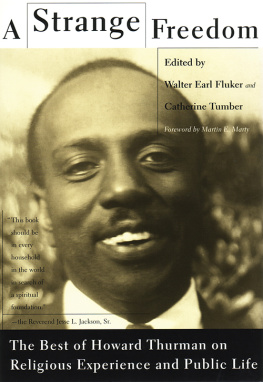
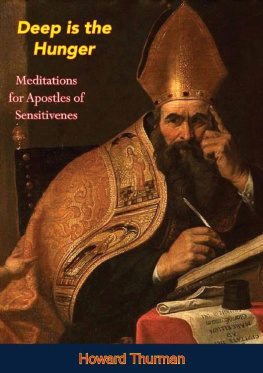
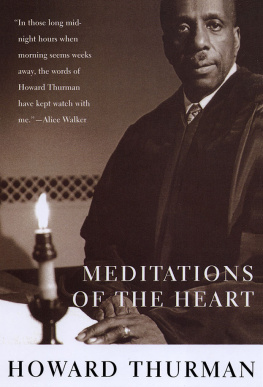

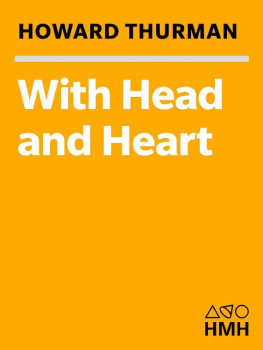

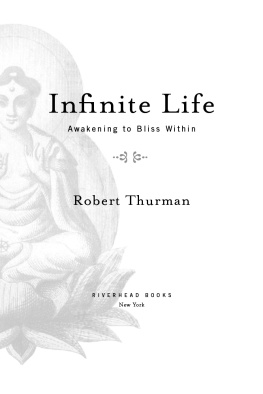
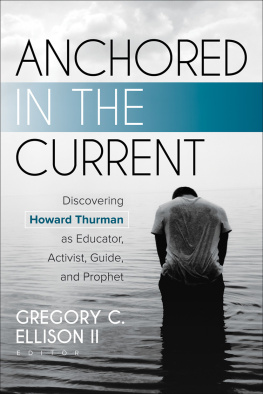
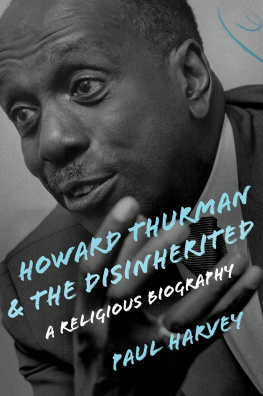
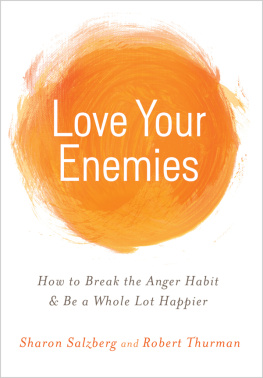
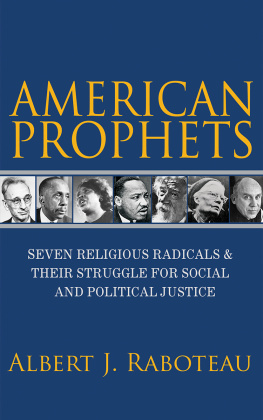


 IT IS A STRANGE FREEDOM to be adrift in the world of men without a sense of anchor anywhere. Always there is the need of mooring, the need for the firm grip on something that is rooted and will not give. The urge to be accountable to someone, to know that beyond the individual himself there is an answer that must be given, cannot be denied. The deed a man performs must be weighed in a balance held by anothers hand. The very spirit of a man tends to panic from the desolation of going nameless up and down the streets of other minds where no salutation greets and no friendly recognition makes secure. It is a strange freedom to be adrift in the world of men.
IT IS A STRANGE FREEDOM to be adrift in the world of men without a sense of anchor anywhere. Always there is the need of mooring, the need for the firm grip on something that is rooted and will not give. The urge to be accountable to someone, to know that beyond the individual himself there is an answer that must be given, cannot be denied. The deed a man performs must be weighed in a balance held by anothers hand. The very spirit of a man tends to panic from the desolation of going nameless up and down the streets of other minds where no salutation greets and no friendly recognition makes secure. It is a strange freedom to be adrift in the world of men.